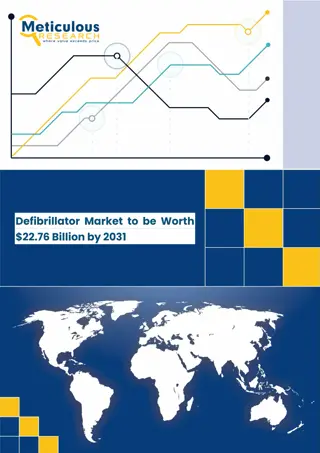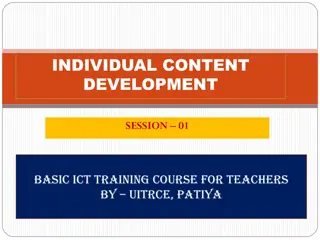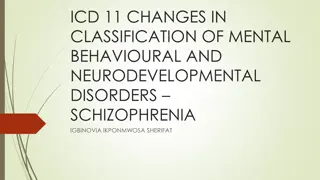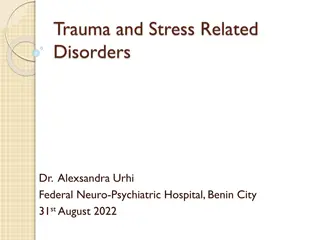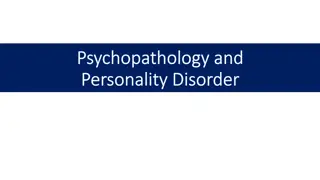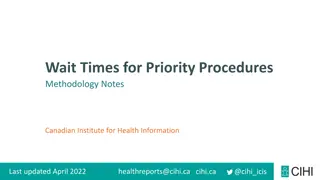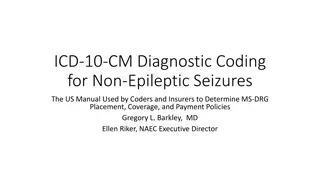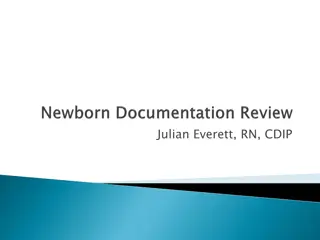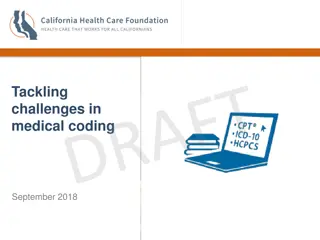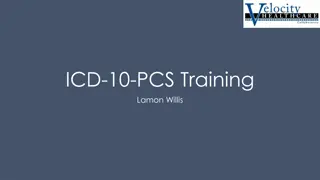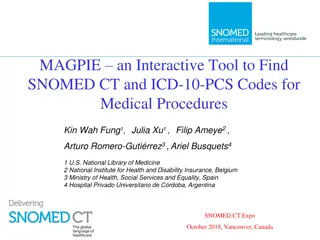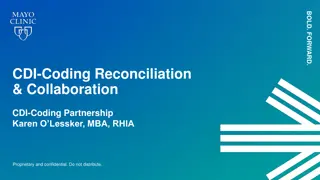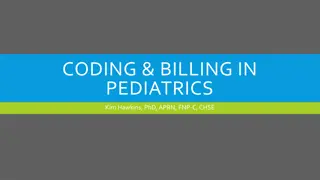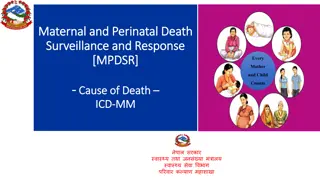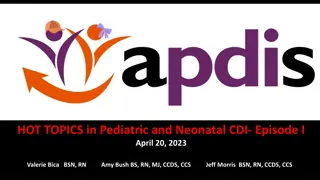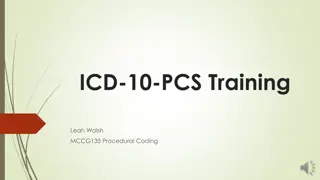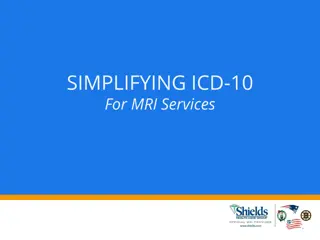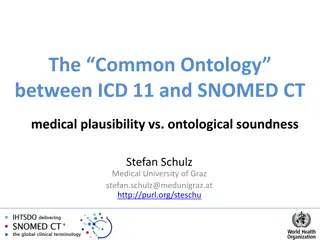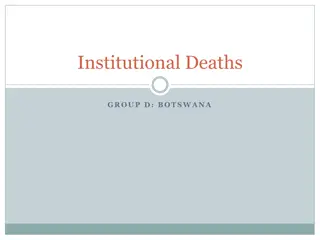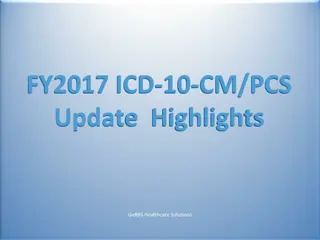Defibrillator Market
'Defibrillator Market by Product (Implantable (ICD) [Transvenous {Dual Chamber, Single-chamber, CRT-D}, Subcutaneous], External (ECD) [Manual, Automated, Wearable]), End User (Hospital, Emergency Care, Home Care), Age Group \u2013 Global Forecast to 2031.
2 views • 4 slides
Understanding Individual Content Development & Fusion in ICD Training Course
Explore the significance of individual content development in planning, creating, and distributing content for specific audiences. Dive into the basics of ICT training for teachers by UITRCE, Patiya, led by Assistant Teacher MD. Mahfuzul Alam. Discover the fusion in ICD and grasp the essence of effe
0 views • 6 slides
Understanding Changes in Classification of Schizophrenia from ICD-10 to ICD-11
Schizophrenia, a complex mental disorder, has been classified differently in the ICD-10 and ICD-11 manuals. This article explores the diagnostic criteria for schizophrenia in both classifications, highlighting the changes made in the transition. It discusses the epidemiology of schizophrenia, preval
0 views • 34 slides
Understanding Trauma and Stress-Related Disorders: A Comprehensive Overview
Trauma and stress-related disorders encompass maladaptive responses to severe stress, affecting social functioning. This article delves into classifications, specifically PTSD, emphasizing clinical presentation and management. It explores ICD-10 and ICD-11 coding, defining PTSD and its essential fea
0 views • 30 slides
Understanding Psychopathology and Diagnostic Systems in Mental Health
Psychopathology encompasses the study of mental illness and distress, with psychiatrists and clinical psychologists deeply involved in diagnosis and treatment. Signs of psychopathology can include mood changes, excessive worry, and withdrawal from activities. Diagnostic systems like DSM-5, ICD-11, a
0 views • 22 slides
Understanding ICD-11 and ICHI: Terminology, Overview, and Purpose
International Classification of Diseases (ICD-11) and International Classification of Health Interventions (ICHI) provide a comprehensive framework for recording and analyzing health data globally. The system ensures semantic interoperability, integrates terminology and classification, and supports
4 views • 21 slides
Understanding Wait Time Methodology for Priority Procedures in Canada
This document outlines the methodology, definitions, and history of wait times for priority procedures as established by the Canadian Institute for Health Information (CIHI). It includes information on wait time segments, cohort definitions, and future expansion possibilities. The document also prov
2 views • 51 slides
Understanding ICD-10-CM Coding for Seizure Disorders: A Comprehensive Guide
ICD-10-CM codes play a crucial role in diagnosing and managing seizure disorders, including epilepsy and non-epileptic seizures. This detailed guide covers the coding guidelines for various types of seizures, such as intractable epilepsy and conversion disorder with seizures. It also explains how th
0 views • 6 slides
Coding Guidelines for Newborn Conditions
Understand the coding guidelines for newborn conditions, including the identification of clinically significant conditions, the use of supplemental oxygen and bag ventilation, and the classification of congenital anomalies. Learn when to assign procedure codes and how to interpret the ICD-9-CM Offic
0 views • 11 slides
Challenges in Medical Coding: A Critical Look at Errors and Solutions
Medical coding plays a crucial role in translating patient encounters into billable data, but incorrect coding poses significant challenges. Billing error rates are high, impacting providers, patients, and payers. Each step in the coding process has its issues, such as incomplete documentation and l
2 views • 5 slides
Root Operations in ICD-10-PCS for Body Part Procedures
An overview of root operations in ICD-10-PCS related to taking out solids, fluids, or gases from a body part, including Drainage, Extirpation, and Fragmentation. Each root operation has specific definitions, examples, and explanations for procedures involving removal or manipulation of solid matter
0 views • 60 slides
Diabetes Coding Strategies for Improved Risk Adjustment
Explore the intricacies of diabetes coding to ensure the highest specificity for risk adjustment capture. Learn about the main ICD-10 categories, HCCs, diabetes diagnosis hierarchy, risk capture review, and more to accurately document diabetes-related conditions for optimal reimbursement under Medic
0 views • 30 slides
Understanding ICD-11 and Morbidity Coding Principles
ICD-11 is a classification system that groups entities based on statistical relevance and specificity of codes. Entities without specific codes are assigned to residual codes (Y for specified, Z for unspecified) based on hierarchy. Examples illustrate the differentiation between specified and unspec
0 views • 15 slides
Understanding SNOMED CT and ICD-10-PCS Codes for Medical Procedures
MAGPIE, an interactive tool designed by Kin Wah Fung et al., aids in finding SNOMED CT and ICD-10-PCS codes for medical procedures. The ICD-10-PCS system, introduced by the U.S. CMS, features a multi-axial structure with seven characters representing different aspects of a procedure. The ICD-10-PCS
0 views • 18 slides
Inpatient CDI/Coding Reconciliation Process Overview
This document outlines the integrated process of CDI/coding reconciliation in inpatient settings, emphasizing collaboration between CDI specialists and coders to ensure accurate documentation, ICD-10 coding, and DRG reporting. Key focus areas include physician queries, documentation improvement oppo
3 views • 9 slides
Pediatric Coding and Billing Guidelines by Kim Hawkins, PhD, APRN, FNP-C
This presentation by Kim Hawkins provides essential information on pediatric coding and billing practices, including 2018 ICD-10-CM updates and principles for accurate documentation. It covers evaluation and management (E/M) coding, factors affecting E/M level of service, and distinctions between ne
0 views • 40 slides
Importance of Collecting Standardized Social Determinants of Health Data
Health centers are focusing on collecting standardized social determinants of health (SDOH) data to address the needs of individual patients and promote social justice. This systematic approach involves gathering qualitative data for every patient, structured data via screening tools, and standardiz
0 views • 28 slides
Understanding Anorexia Nervosa: Symptoms and Psychopathology
Anorexia nervosa is a serious eating disorder characterized by food restriction, bingeing, purging, and distorted body image. Common symptoms include excessive exercise, body checking, and rigid food rules. Psychopathology aspects include intrusive dread of fatness, self-imposed low weight threshold
0 views • 42 slides
Understanding Maternal and Perinatal Death Surveillance and Response
Explore the causes and classification of maternal and perinatal deaths, emphasizing the importance of determining the primary, contributory, and final causes of death. Learn how to categorize maternal deaths according to ICD-MM and perinatal deaths according to ICD-PM classifications. Delve into the
0 views • 61 slides
Understanding the Coding Guidelines for Preterm Newborns with Small for Gestational Age (SGA)
Explore the guidelines for coding preterm newborns who are small for gestational age, including birth weight considerations and criteria for assigning appropriate ICD-10 codes. Gain insights into differentiating SGA from low birth weight and effectively documenting neonatal cases.
0 views • 17 slides
Understanding ICD-10-PCS Procedure Coding System
The ICD-10-PCS is a set of codes used to identify services and treatments for inpatient procedures. It features a 7-character coding structure, with each character representing a specific detail. The system is designed to collect data, support electronic health records, and determine payment for med
0 views • 8 slides
Evaluating E-Scooters and Innovative Mobility Options in Georgia
The Georgia Senate Study Committee reviewed the impact of e-scooters and other innovative mobility options on public health, particularly the challenges in identifying and recording injuries. Grady Health System shared initial scooter injury data, highlighting the importance of hospitals in managing
0 views • 20 slides
Billing and Claims Guidance for Oregon Insurance Companies During COVID-19
The Division of Financial Regulation in Oregon provides guidance on billing and claims for insurance companies during the COVID-19 pandemic. The information includes resources for coverage requirements, agreements on cost-sharing for COVID-19 testing visits, and advice on coding guidelines. It also
0 views • 21 slides
Simplifying ICD-10 for MRI Services Overview
Understanding the transition from ICD-9 to ICD-10 is crucial for MRI services. The shift involves more specific information and detailed documentation to improve patient care quality. ICD-10 codes require additional details such as location, severity, mechanism of injury, and history. The key lies n
0 views • 20 slides
Overview of Classification of Psychiatric Disorders
Psychiatric disorders are illnesses with various manifestations that impact functioning due to disturbances in biological, social, genetic, and other factors. Two key classification systems, ICD-10 and DSM-5, categorize over 200 types of psychiatric illnesses. The ICD-10 includes categories like org
0 views • 18 slides
Ontological Basis in ICD-11 and SNOMED CT Harmonization
This study explores the alignment and harmonization of the ontology between ICD-11 and SNOMED CT, emphasizing the importance of a common ontological foundation for optimal interoperability in healthcare data coding and terminology. The collaboration aims to merge clinical terminologies to enhance pl
0 views • 12 slides
Enhancing Death Registration Process in Botswana
Strategies to address bottlenecks in institutional deaths in Botswana include decentralizing coding, simplifying ICD processes, enhancing staff training, strengthening partnerships, and increasing coding staffing. The death registration process involves reporting in health facilities, coding and dat
0 views • 7 slides
Updates and Highlights in FY2017 ICD-10-CM/PCS
In the FY2017 update of ICD-10-CM/PCS, significant changes have been made with new codes, updates, and deletions affecting coding diagnoses. The update includes coding highlights related to various conditions like bacteriuria, sepsis, pre-diabetes, and Zika virus. The Third International Consensus D
0 views • 30 slides
